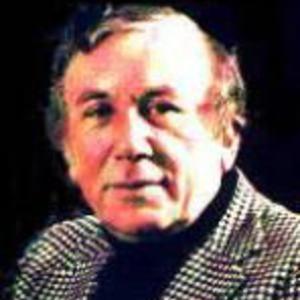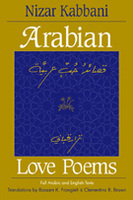

Major newspapers reported on the loss: The London Times described Kabbani as “the Arab World’s greatest love poet in modern times,”(3) while the Washington Post called him “the master of the love verse.”(4) The New York Times obituary quoted a Syrian poet who said that Kabbani has been “as necessary to our lives as air.”(5) Most radio and television stations in the Arab world interrupted their regular programs to announce the sad news of Kabbani’s death. Outside of his native Syria, the poet was mourned by millions of Arabs all over the world. Still, a large number of women attended the funeral-women who had been deeply touched over the years by Kabbani’s verses, which spoke directly to them, about them, and for them. Traditionally, Syrian women have not participated in such large public processions. (2) The mourners included the minister of defense, the governor of Damascus, other high-level government officials, Syrian Ba’thist leaders, Arab writers, members of influential organizations, unionists, artists, and journalists. The newspaper Ash-Sharq Al-Awsat estimated that more than ten thousand people walked in the three-hour funeral procession to Bab al-Shaghour, where the poet was laid to rest next to his father, mother, sister, and son. On the afternoon of a torrid May 4, a massive number of people crammed into the street in front of Badr Mosque, where the poet’s funeral took place. Kabbani, a devoted and committed Arab nationalist, was “hailed across Syria as a national hero,” wrote the New York Times on the day following his death.(1) Al-Assad sent a member of his cabinet to extend his personal condolences to the family, and Kabbani’s coffin was draped with the Syrian flag in one of the largest funeral services in the country’s history. I want to return home like the bird returns home and like the baby returns to his mother’s bosom.” Kabbani had asked in his will to be buried in his native land: “I want my body to be transported after my death to Damascus to be buried there with my people.” Kabbani continued in his will, “ Damascus is the womb that taught me poetry, creativity and the alphabet of Jasmine.

Syrian president Hafez Al-Assad, who had just two months earlier decided to name a major street after Kabbani in Abu Roummana, the most prestigious district in Damascus, dispatched his own plane to carry Kabbani’s body back to the city of his birth. The battle for his life, waged against complications resulting from several heart attacks, lasted four months. ON APRIL 30, 1998, NIZAR KABBANI, THE MOST POPULAR ARAB poet of the twentieth century, died at age 75 in London. This is a new edition of the first translations published in 1993. Brown, published in Colorado, the U.S.A. in 1999 by Lynne Rienner Publishers, Inc.
#Nizar kabbani arabian love poems cheap full
The following was copied verbatim from the book titled NIZAR KABBANI ARABIAN LOVE POEMS, Full Arabic and English Texts, Translations by Bassam K. BROWN translates and interprets from Arabic, French, and Spanish into English. FRANGIEH is Professor of Arabic at Yale University. He died on Apat his request, he was buried in Damascus.īASSAM K. He served in Syria’s diplomatic corps for more than 20 years (1945-1966), but settled for political reasons in London. NIZAR KABBANI was born in Syria in 1923, to a traditional, well-to-do family. If you open my veins with your knife, you will hear in my blood the voices of those who have departed.” If you dissect my body, grapes and apples will come out of it. He was the poet of Damascus: “I am the Damascene. He was an Arab nationalist, yet he criticized Arab dictators and the lack of freedom in the Arab world. He was a ceaseless campaigner for women’s rights, and his verses praise the beauty of the female body, and of love. Kabbani was a poet of great simplicity-direct, spontaneous, musical, using the language of everyday life. Frangieh and Brown’s elegant translations are accompanied by the striking Arabic texts of the poems, penned by Kabbani himself especially for this collection. Arabian Love Poems is the first English-language collection of his work. NIZAR KABBANI’S POETRY HAS BEEN DESCRIBED AS “MORE POWERFUL than all the Arab regimes put together” (Lebanese Daily Star). Used with permission of Lynne Rienner Publishers, Inc.

Used with permission of Lynne Rienner Publishers.įrom Arabian Love Poems by Nizar Kabbani, translated by Bassam K. Nizar Kabbani from the book Arabian Love Poems.


 0 kommentar(er)
0 kommentar(er)
